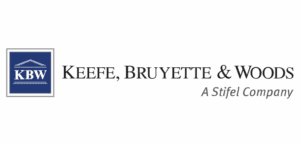How much is car insurance a month?
How much is car insurance a month?
The national average cost of car insurance is $1,630 per year, according to NerdWallet’s 2022 rate analysis. That works out to an average car insurance rate of about $136 per month. Feb 9, 2022
Is MD a no fault state?
Maryland is an “at-fault” state for determining who has financial liability for harm caused in a vehicle crash. Typically, the driver who authorities find legally to blame for an accident is responsible for the financial costs of injuries and other damage caused. Jun 20, 2016
Does insurance follow the car or driver in Maryland?
Is my car covered if someone else drives it? Fortunately the insurance follows the car and not the driver. Your vehicle is covered as long as you give that person permission to drive your car. One thing to note is that your insurance company will be the one to pay out and surcharge you if the driver causes an accident.
What happens if you don’t have car insurance in Maryland?
In Maryland, driving without insurance is a misdemeanor criminal citation. This means that in addition to severe fines, you could face jail time & cause you to lose your license. A conviction on a first offense can carry 5 points on your license, a $1000 fine and up to one year in jail.
Do you have to insure a vehicle that is off the road?
Although you don’t need insurance while your vehicle is officially off road, it could still be damaged or stolen, so you may want to consider continuing your insurance to keep your vehicle protected and ready to go when you’re back behind the wheel. Dec 3, 2021
What is private mortgage insurance and who does it protect?
Share. Private mortgage insurance (PMI) is a type of insurance that may be required by your mortgage lender if your down payment is less than 20 percent of your home’s purchase price. PMI protects the lender against losses if you default on your mortgage.
What is the purpose of private mortgage insurance?
Private mortgage insurance, also called PMI, is a type of mortgage insurance you might be required to pay for if you have a conventional loan. Like other kinds of mortgage insurance, PMI protects the lender—not you—if you stop making payments on your loan. Sep 4, 2020
What is private mortgage insurance and when is it typically required?
Key Takeaways. Lenders require borrowers to pay PMI when they can’t come up with a 20% down payment on a home. PMI can be removed once a borrower pays down enough of the mortgage’s principal. A homebuyer may be able to avoid PMI by piggybacking a smaller loan to cover the down payment on top of the primary mortgage.
How long do you have to pay private mortgage insurance?
Borrowers must pay their PMI until they have accumulated enough equity in the home that the lender no longer considers them high-risk. PMI costs can range from 0.25% to 2% of your loan balance per year, depending on the size of the down payment and mortgage, the loan term, and the borrower’s credit score.
Who benefits from private mortgage insurance?
Private mortgage insurance (MI) puts home ownership in reach for millions of qualified borrowers because it helps them to obtain mortgages with smaller down payments – as little as 3% in some cases — while also protecting lenders and investors from losses if those borrowers default on their mortgages.
How can I avoid PMI without 20% down?
To sum up, when it comes to PMI, if you have less than 20% of the sales price or value of a home to use as a down payment, you have two basic options: Use a “”stand-alone”” first mortgage and pay PMI until the LTV of the mortgage reaches 78%, at which point the PMI can be eliminated. 1 Use a second mortgage.
Is PMI a waste of money?
It’s nearly impossible to make that kind of return in the stock market, retirement account, or another financial instrument. PMI, then, can be viewed as an investment — a very sound one — and not a waste of money. Mar 15, 2022
Does PMI go away on FHA?
Because of the Homeowners Protection Act of 1989, lenders must cancel conventional PMI when you reach a 78% loan-to-value ratio. Many home buyers opt for a conventional loan because PMI drops while FHA MIP does not go away on its own — unless you put down 10% or more. Jan 28, 2022
Is PMI based on credit score?
Credit scores and PMI rates are linked Insurers use your credit score, and other factors, to set that percentage. A borrower on the lowest end of the qualifying credit score range pays the most. “Typically, the mortgage insurance premium rate increases as a credit score decreases,” Guarino says. Aug 11, 2020
How much is PMI on a $100 000 mortgage?
between $30 and $70 per month While PMI is an initial added cost, it enables you to buy now and begin building equity versus waiting five to 10 years to build enough savings for a 20% down payment. While the amount you pay for PMI can vary, you can expect to pay approximately between $30 and $70 per month for every $100,000 borrowed.





